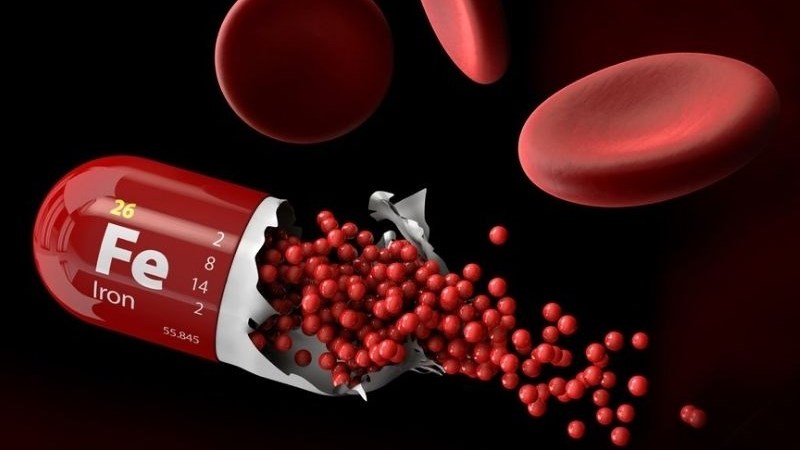Vitamin C is an indispensable micronutrient for human health. So what are the effects of Vitamin C and what should be noted when using it? Find out through the article below!
What is Vitamin C? Daily Vitamin C requirement
Vitamin C (ascorbic acid) is a water-soluble vitamin, an essential nutrient for the body. However, the body cannot synthesize it and needs to be supplemented through daily diet. Vitamin C not only plays an important role in wound healing but is also an antioxidant, helping to protect the body from the effects of free radicals.
1 Benefits of Vitamin C
Vitamin C helps reduce the risk of chronic diseases
Vitamin C is a powerful antioxidant that protects the body from damage caused by free radicals. Therefore, adequate vitamin C supplementation helps strengthen the body’s natural defense system, fight inflammation and reduce the risk of chronic diseases such as cardiovascular disease.

Vitamin C helps reduce the risk of cardiovascular disease
Vitamin C Helps Control High Blood Pressure
High blood pressure is the leading cause of death in the world. Some studies have shown that vitamin C supplementation can help lower blood pressure in both hypertensive and non-hypertensive people by dilating the blood vessels leading from the heart.
Vitamin C stimulates collagen synthesis
Collagen is a protein abundant in the body and plays an important role in connective tissues such as skin, hair, and nails. Vitamin C can stimulate increased collagen synthesis, maintain skin elasticity, and prevent skin aging.

Vitamin C helps increase collagen production, preventing skin aging
Vitamin C helps prevent iron deficiency
Iron is an essential mineral for the body, it helps create red blood cells and transport oxygen throughout the body. Supplementing Vitamin C helps the body increase iron absorption from food, specifically when you consume 100g of Vitamin C can increase the ability to absorb iron by 67%.

Vitamin C helps increase iron absorption
Vitamin C Boosts the Immune System
Vitamin C is known for its excellent immune system health boosting properties. It stimulates the production of white blood cells, thus helping the body fight off harmful agents such as free radicals and germs.
In addition, Vitamin C also plays an important role in wound healing and shortens the recovery time of lung function.
Vitamin C Helps Prevent Gout Attacks
Gout is an inflammatory arthritis that causes severe pain and swelling in the joints due to increased uric acid or uric acid excretion leading to the accumulation of urate salt crystals in the joints.
Vitamin C can reduce uric acid levels in the blood as well as fight against gout attacks. Specifically, in a study of 46,994 healthy men, it was shown that those who regularly supplemented with Vitamin C had a 44% lower risk of gout.
Vitamin C Helps Reduce Dementia in the Elderly
Vitamin C is a powerful antioxidant that can protect brain cells from damage caused by free radicals. Therefore, maintaining adequate daily vitamin C supplementation is necessary to help reduce the risk of dementia in the elderly.
2 Ways to Use Vitamin C
Daily Vitamin C Supplements
Vitamin C needs vary depending on many factors such as age, gender, and health status. Below is the specific daily Vitamin C supplement required for each age group:
- 0 – 6 months old: 40mg.
- 7 – 12 months old: 50mg.
- 1 – 3 years old: 15mg.
- 4 – 8 years old: 25mg.
- 9 – 13 years old: 45mg.
- 14 – 18 years old: 75mg for men and 65mg for women.
- Over 19 years old: 90mg for men and 75mg for women.
The amount of Vitamin C needed for pregnant women is about 80mg/day. Meanwhile, the Vitamin C requirement for breastfeeding women can be up to 120mg/day. Smokers need 35 mg more Vitamin C per day than non-smokers.

Pregnant women need to supplement about 80mg of vitamin C per day.
When to take Vitamin C
The recommended time to take Vitamin C is 30 minutes to 2 hours before breakfast. You should not take Vitamin C in the evening because it can lead to insomnia and increase the risk of kidney stones.
People who need to supplement Vitamin C
Everyone should supplement Vitamin C, but the following people are at high risk of deficiency, so they need to pay attention to supplementing it through their diet:
- Smokers: cigarette smoke reduces the amount of Vitamin C in your body, so people who smoke regularly need to supplement more Vitamin C than normal people.
- Infants who only drink cow’s milk: cow’s milk does not provide enough Vitamin C as well as other nutrients for children, so babies need to breastfeed or formula to supplement this vitamin.
- People with digestive disorders: Vitamin C supplementation in people with digestive disorders will help the body regain energy and increase resistance.
- People on dialysis: people with kidney disease are at high risk of Vitamin C deficiency. However, you should consult your doctor before using Vitamin C for this group.
- People who abuse alcohol: people who regularly use alcohol need to supplement Vitamin C for a long time to restore Vitamin C levels to normal levels. However, you should consult your doctor before using Vitamin C for these subjects.
- Cancer patients: Vitamin C helps strengthen the body’s immunity during and after cancer treatment. However, you need permission from your treating doctor.

Infants who only drink cow’s milk need adequate vitamin C supplementation.
How long to take Vitamin C?
The duration of taking Vitamin C depends on the dosage, your health condition and your purpose of use. For example, if you want to take Vitamin C to treat the flu, you need to take about 200mg – 3g per day and take it for 3 – 5 days.
In addition, you can take Vitamin C for 3 – 6 months to brighten and even out your skin tone. If you take Vitamin C to increase your resistance, you can take about 100 – 200mg/time and take it twice a day in the morning and at noon.
How to store Vitamin C
You should store Vitamin C at room temperature, away from moisture or excessive heat (>40 ºC). In addition, Vitamin C can also be oxidized under strong light, so you need to keep Vitamin C in a dark or cool place.
3 Notes when using Vitamin C
Possible side effects
Vitamin C is recommended for daily supplementation and is safe for most people. However, when you take Vitamin C in doses above 2000mg per day, you may experience some side effects such as headache, nausea, vomiting, diarrhea, heartburn, stomach cramps, bloating, fatigue, insomnia and can even lead to kidney stones

Vitamin C can cause kidney stones in high doses over a long period of time
Drug Interactions
When using Vitamin C, it may interact with the following drugs:
- Estrogen: Vitamin C used with estrogen can increase the side effects of estrogen.
- Fluphenazine: Vitamin C reduces the effectiveness of fluphenazine when used together.
- Paclitaxel: Antioxidants can reduce the effects of cancer drugs (paclitaxel).
- Warfarin: Vitamin C reduces the anticoagulant effect of warfarin.
- Levothyroxine: Vitamin C increases the effects and side effects of levothyroxine.
Who should not take Vitamin C
Vitamin C is contraindicated in people with blood disorders such as G6PD deficiency, thalassemia, sickle cell disease, and hemoglobinopathy. In addition, you should avoid taking vitamin C before and after angioplasty (a technique to widen the coronary arteries when they are narrowed) because it can hinder the wound healing process.
In addition, vitamin C should be considered before being used for people with kidney stones because the acidification process can increase the possibility of crystal precipitation (oxalate, urate).
4 Is it good to take a lot of Vitamin C?
Vitamin C is an important nutrient and brings many benefits to human health. However, you need to take the recommended dosage and avoid taking too much because it can cause negative effects on health such as diarrhea, nausea, abdominal cramps and bloating. It is best to consult your doctor before using Vitamin C.
5 Sources of Vitamin C
Natural
You can get enough Vitamin C through your daily diet. Vitamin C is found in many foods, here are some foods rich in Vitamin C:
- Fruits: guava, orange, lemon, grapefruit, strawberry, blueberry, watermelon, mango, peach,…
- Vegetables: tomatoes, peppers, carrots, bell peppers, kale, onions, spinach,..
Dietary Supplements
Vitamin C can also be supplemented through dietary supplements sold on the market. However, you should not overuse it and should consult a doctor or nutritionist before using it.
Vitamins play an important role in human health. A diet rich in Vitamin C combined with a healthy lifestyle and regular exercise will help you maintain good health. If you find it useful, please share it with your friends!





